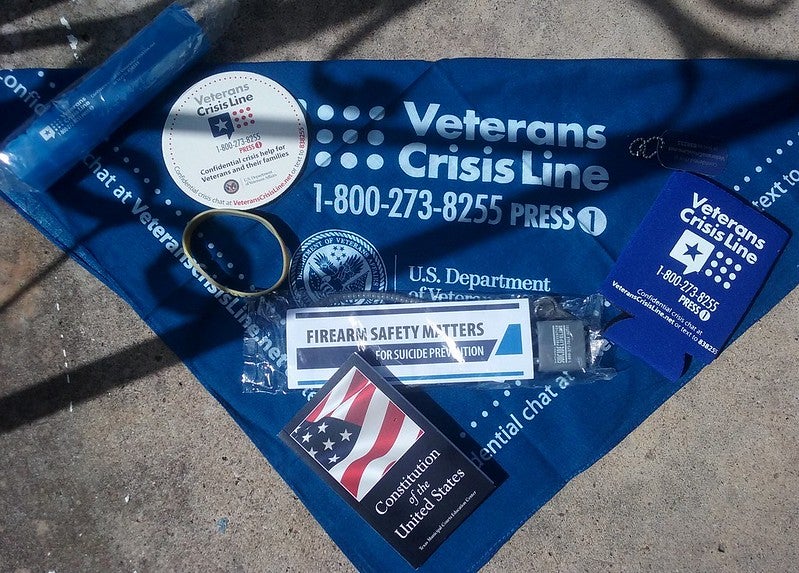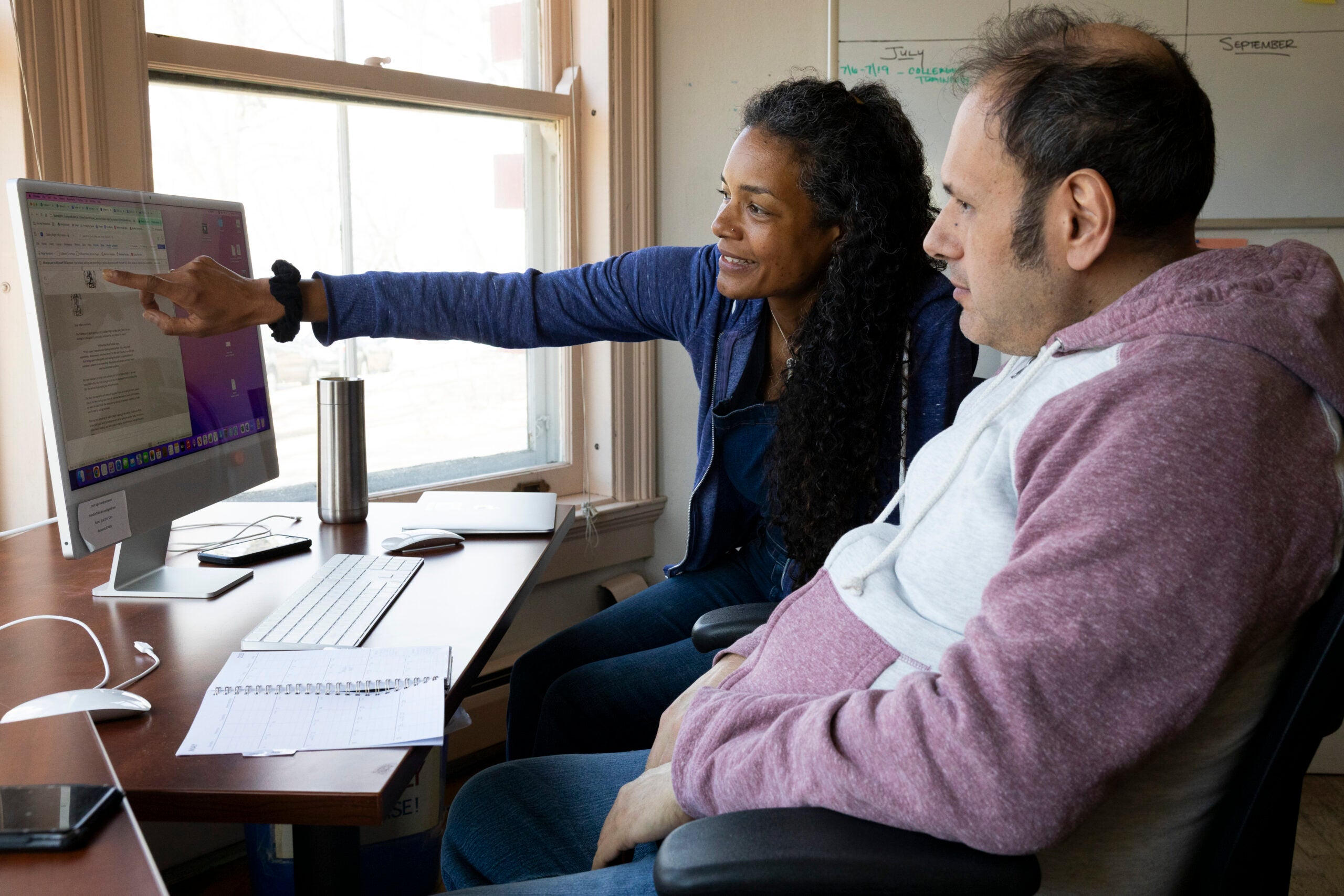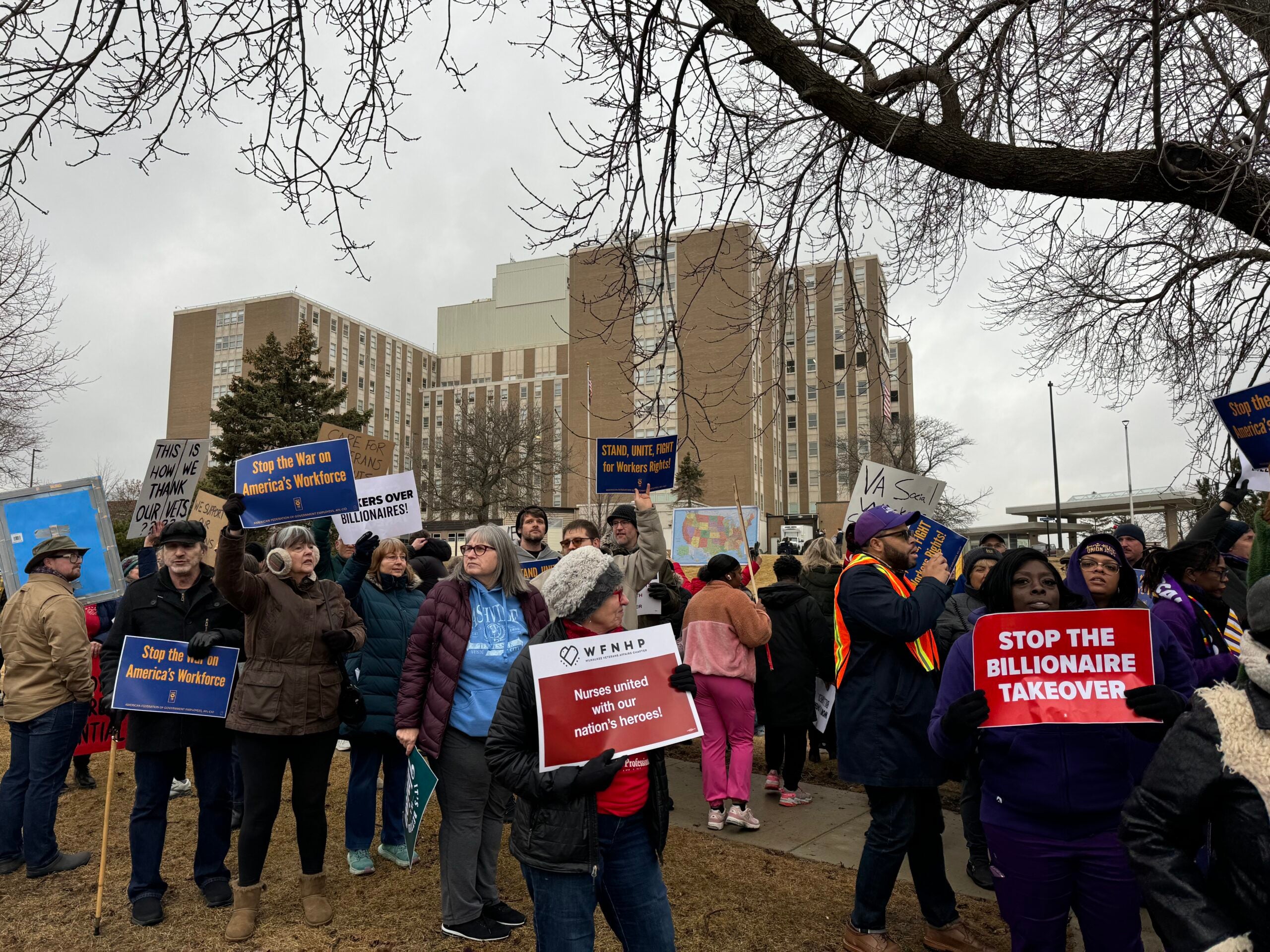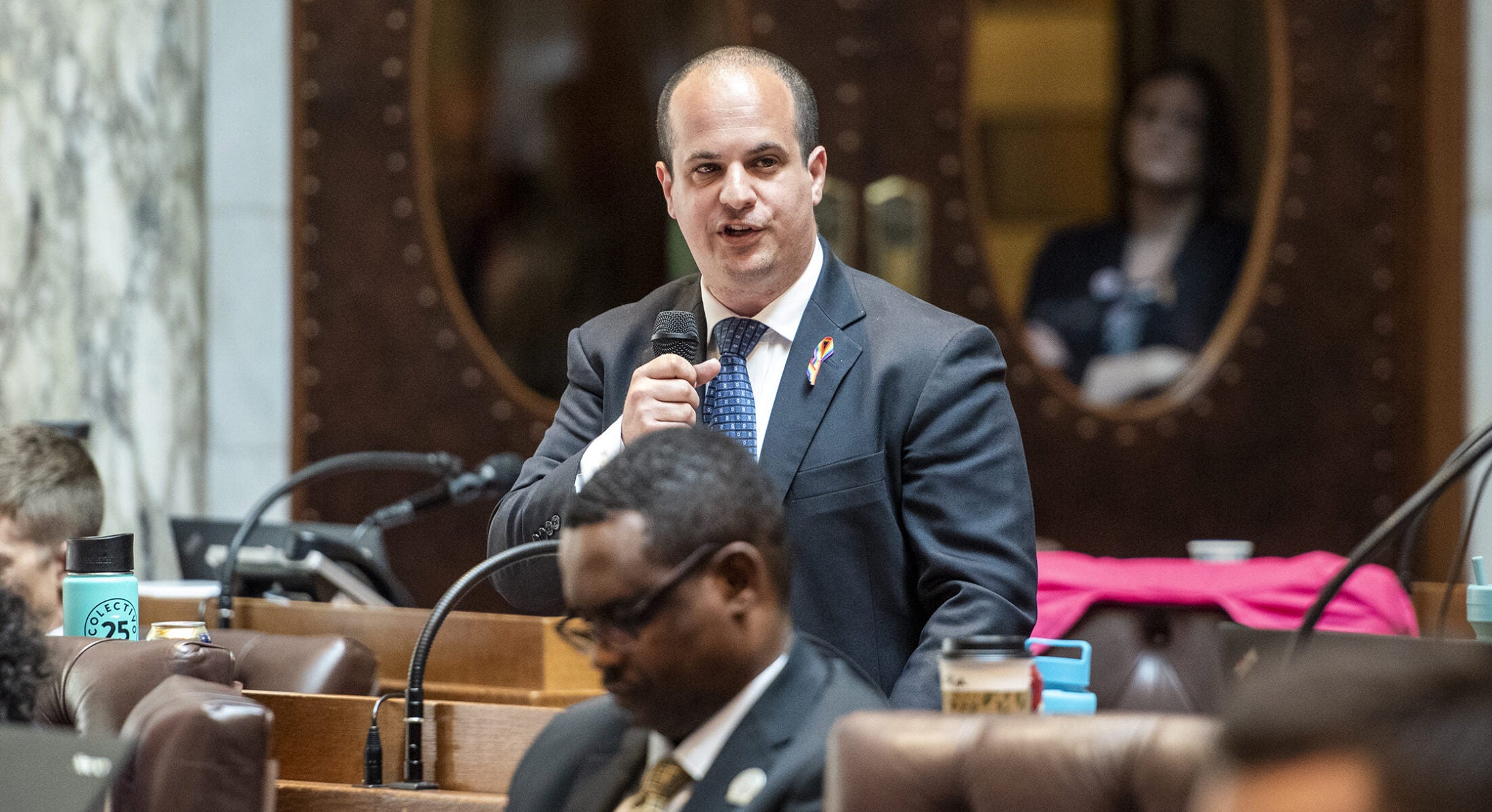The Milwaukee Veteran Affairs Medical Center is working with community partners to try to combat high rates of suicide among veterans in Wisconsin.
The VA hosted a symposium on suicide prevention Thursday, bringing organizations together in the hope of improving the reach and quality of services to veterans in Wisconsin.
According to the most recent National Veteran Suicide Prevention Annual Report, veteran suicide deaths decreased for the second consecutive year in 2020. But the suicide rate of veterans was approximately 58 percent higher than non-veteran adults, which reflects an almost 20-year trend.
Stay informed on the latest news
Sign up for WPR’s email newsletter.
Afghanistan veteran Peter Borucki works for Mental Health America of Wisconsin. He is a peer services coordinator at R&R House in Pewaukee, the nation’s first peer-run respite house for any former members of the United States Armed Forces.
“Even just one death a year by suicide is too many,” Borucki said.
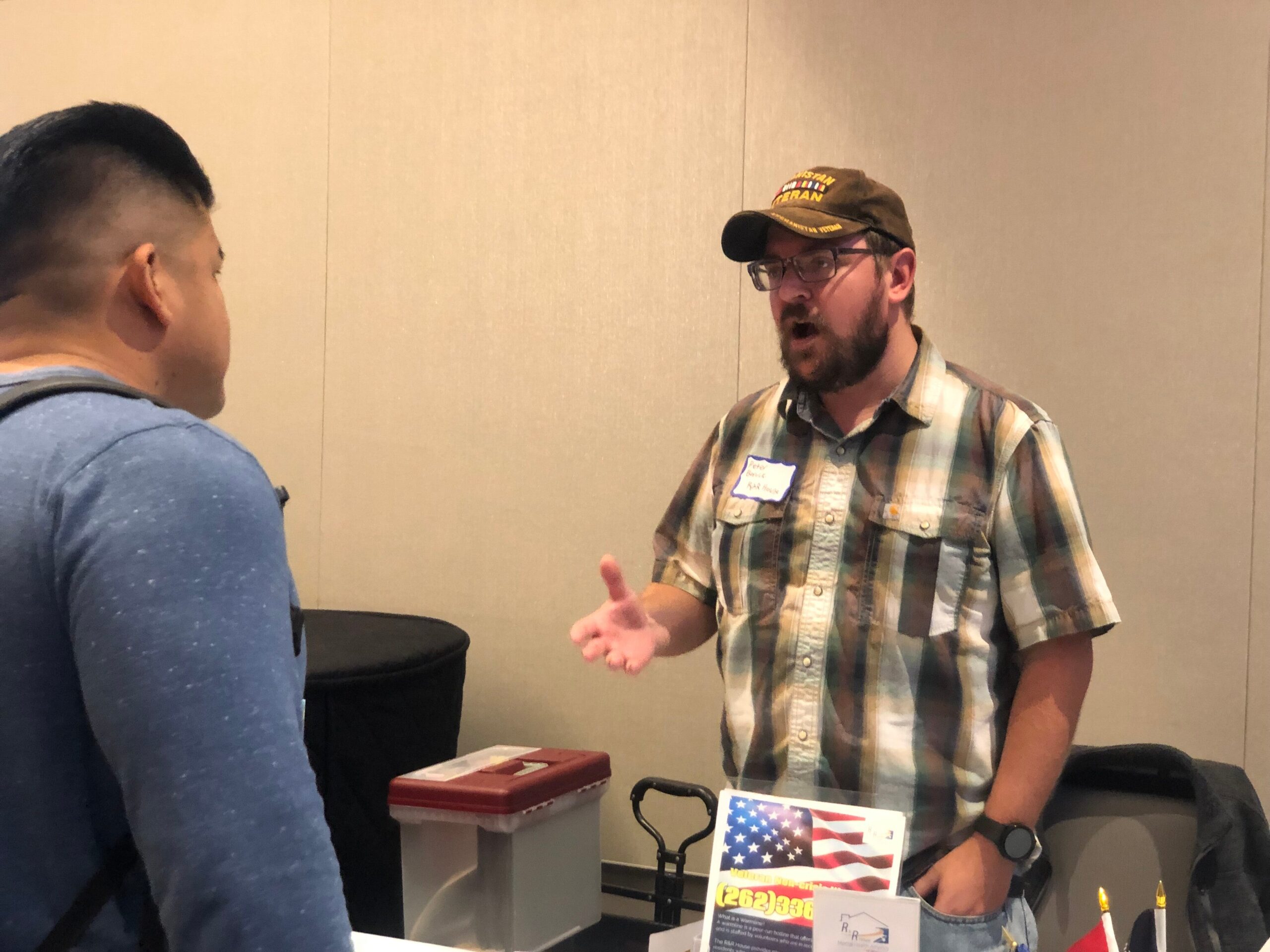
There are 331,340 veterans that live in Wisconsin, according to a 2022 report from the University of Wisconsin-Milwaukee Center for Economic Development on behalf of the Wisconsin Veterans Chamber of Commerce.
But according to the Milwaukee VA, only 30 percent of veterans are served through the organization. Some veterans are ineligible because of length of service or discharge status, and others are unsure if they qualify, or live far away from VA centers and hospitals.
Dona Drew, community engagement and partnership coordinator at the VA, said that’s why networking events like the one at the Milwaukee County War Memorial Center are so important.
“We can’t do this alone. We need partners in the community,” Drew said.
The R&R House has a broader definition of who a veteran is, which allows Borucki to help people who might otherwise be dismissed.
“No one knows a veteran like another veteran,” Borucki said. “Even when you leave the military, you’re still not alone. You still got your brothers and sisters you served with.”
The Veterans Comprehensive Prevention, Access to Care, and Treatment Act, which took effect earlier this year, is also open to people who served in the military who may not be covered by VA health care. Through the act, veterans in suicidal crisis can receive emergency care at hospitals free of charge.
VA estimates this program could help reach up to 9 million former service members who currently are not enrolled with the VA.
Graham Knowlton, Milwaukee VA lead suicide prevention coordinator, said this law could have a huge impact because it removes barriers to getting help.
“It eliminates any of the guesswork and any of the negative impacts. It allows people to just think to themselves, ‘Well, I’m going through this, I probably need help right now. I’m just gonna go in, I don’t have to consider anything else,’” Knowlton said.
Drew said since this is a new service, it’s hard to gauge the response from veterans. But she thinks it will help because it removes the stigma of having a mental health crisis.
“It’s like an open door for our veterans. Just saying to them, ‘Look, you served our country, we will be there for you no matter what,’” Drew said.
At the event, the Wisconsin Department of Veterans Affairs praised Gov. Tony Evers and the efforts of the state to improve the mental health of veterans.
Last year the Blue Ribbon Commission on Veteran Opportunity recommended ways to improve care for veterans. Based on the commission’s findings, the state’s VA said Evers used federal COVID funds to expand the Veterans Outreach and Recovery Program, which focuses on mental health and treatment.
“Things are moving in the right direction, but there can always be more support with mental health,” Borucki said.
Wisconsin Public Radio, © Copyright 2025, Board of Regents of the University of Wisconsin System and Wisconsin Educational Communications Board.
